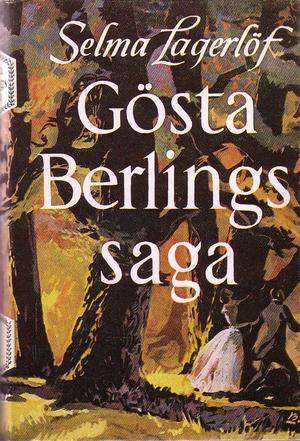It took several months, but I finally finished Gösta Berlings saga. I read it years ago in English; now it was time for Swedish. The only problem is that when you read dense Swedish for most of your work day, there’s not a lot of brain left over for dense Swedish for fun. As a result it took me much longer than it normally would to finish a book of this length and linguistic heft. (Not to compare the quality of writing in a Selma Lagerlöf novel to that of a financial report!)
It’s Gösta Berlings saga, it’s good, the end. What’s more interesting about the book is how many English translations there are. The English translation I originally read was the 1918 edition put out by the American-Scandinavian Foundation, which is essentially Lillie Tudeer’s translation with supplemental material from Velma Swanston Howard, and I remember it as a bit of a slog. I can’t put my finger on it, except to say that it felt very dull and dead. But there have since been three other translations and I thought it would be fun to look at how they all handle that iconic opening line.
The original:
Äntligen stod prästen på predikstolen.*
Or Äntligen stod prästen i predikstolan, depending on which edition you’ve read. Mine is from 1920, so på rather than i.
The Lillie Tudeer translation (1894):
The pastor was mounting the pulpit steps.
This is obviously, at a bare minimum, not particularly faithful to the original.
The Pauline Bancroft Flanch translation (1898):
At last the minister stood in the pulpit.
Already we’re much closer to the original.
The Robert Bly translation (1962):
At last the minister stood in the pulpit.
This translation is not a wholly new work but an edited and revised version of the Flanch translation, so not at all surprising it’s identical to the previous one.
The Paul Norlen translation (2009):
At long last the minister stood in the pulpit.
This translation is an entirely new work, and straightaway we have a little extra flavor in the text.
Since I’m writing this in English, I suppose I should leave off with a recommendation for which translation to pick up. Well, it goes without saying that I’d give a pass on the omnipresent Dover Thrift Edition or any other version of Lillie Tudeer’s translation. I’m the most curious now about Paul Norlen’s translation, though I have an all-or-nothing brain and so will probably burn through all three of the other versions in short order anyway.
